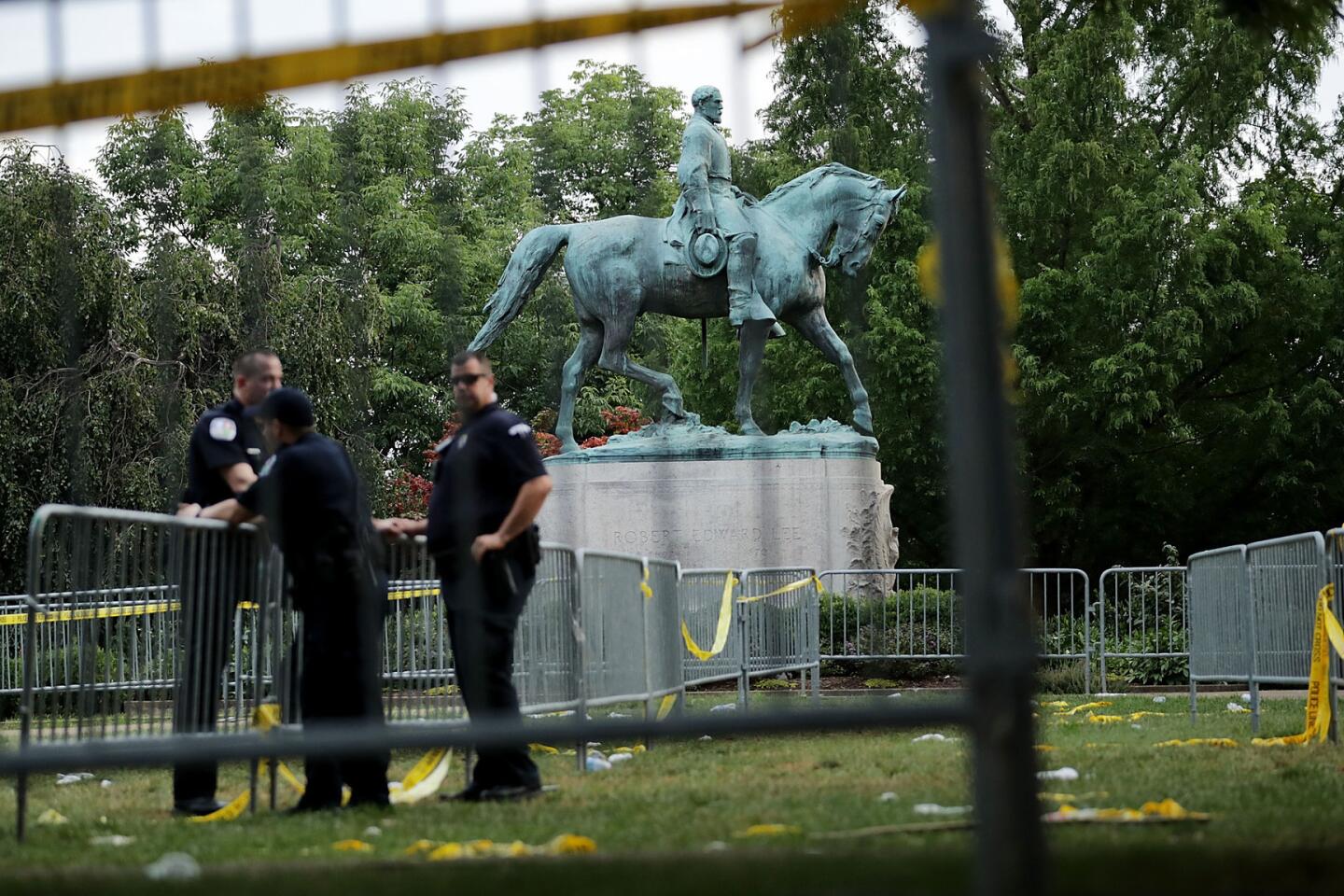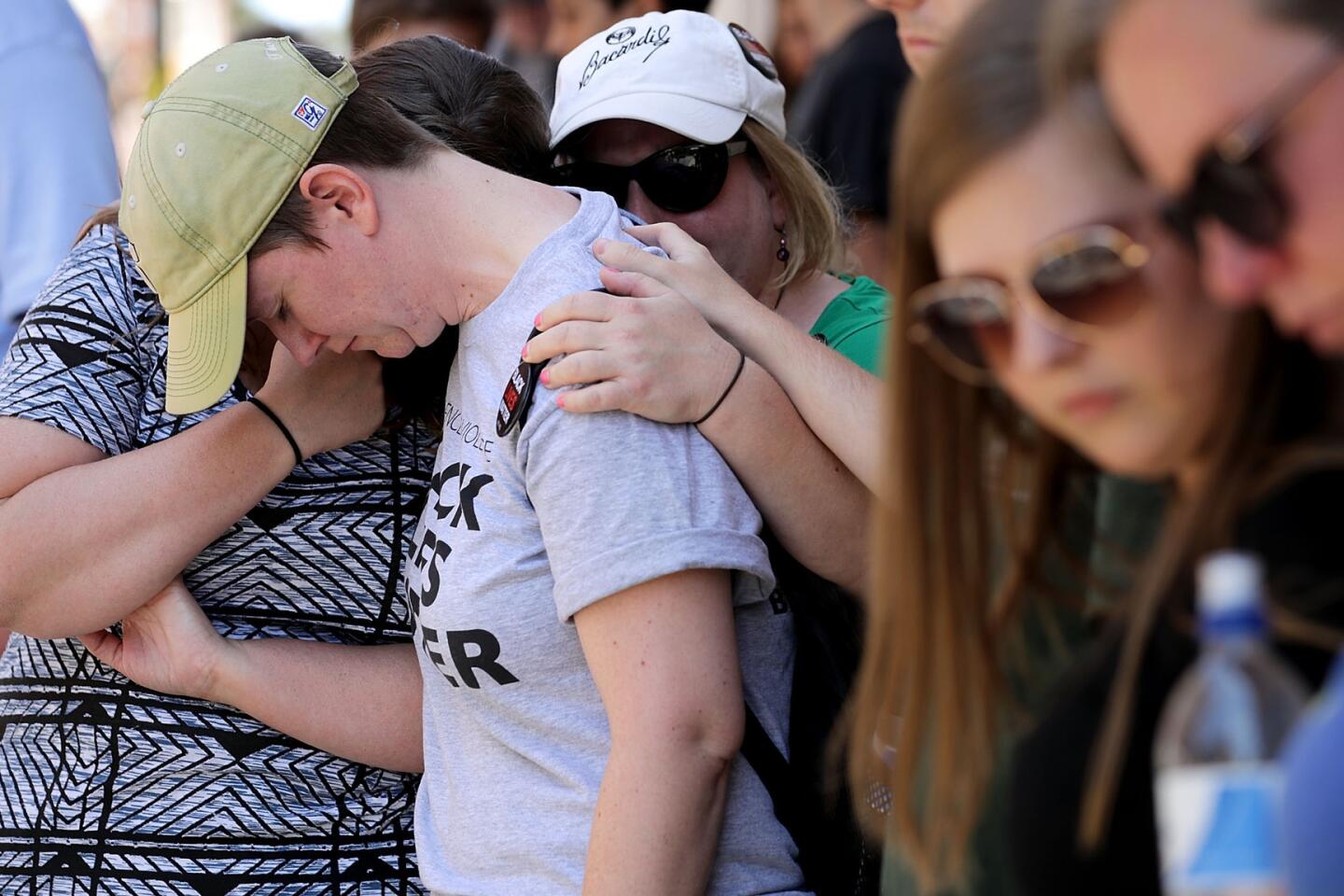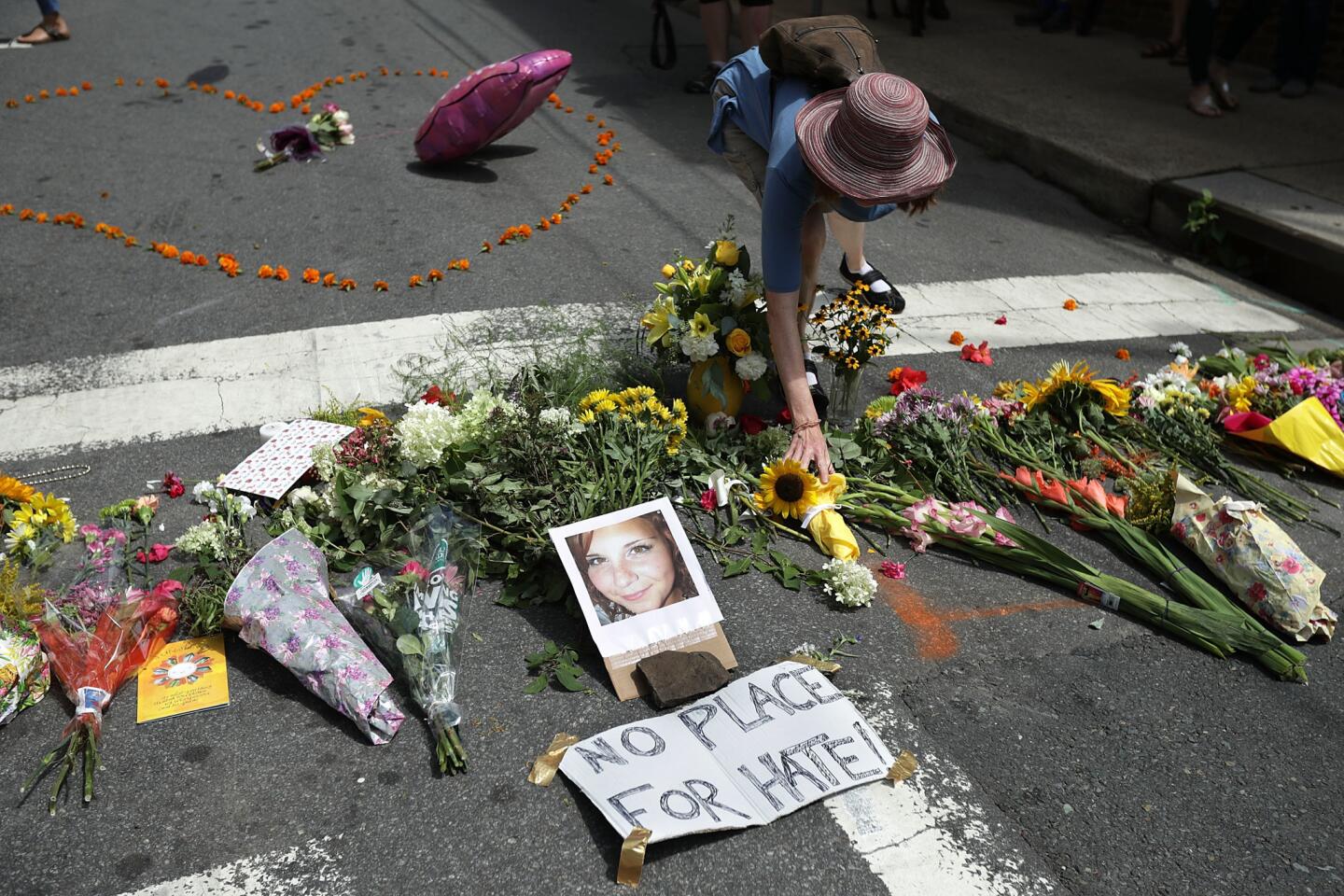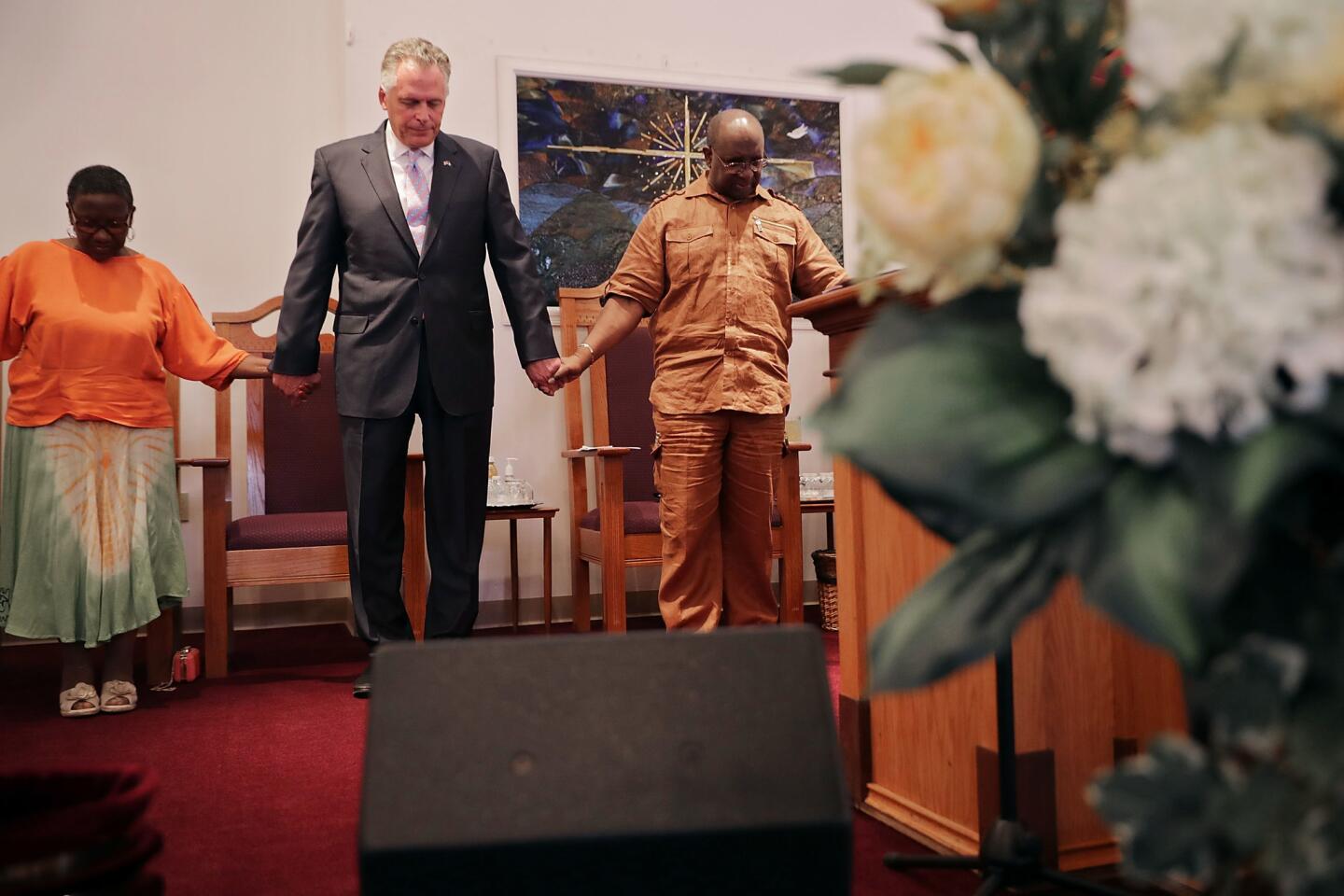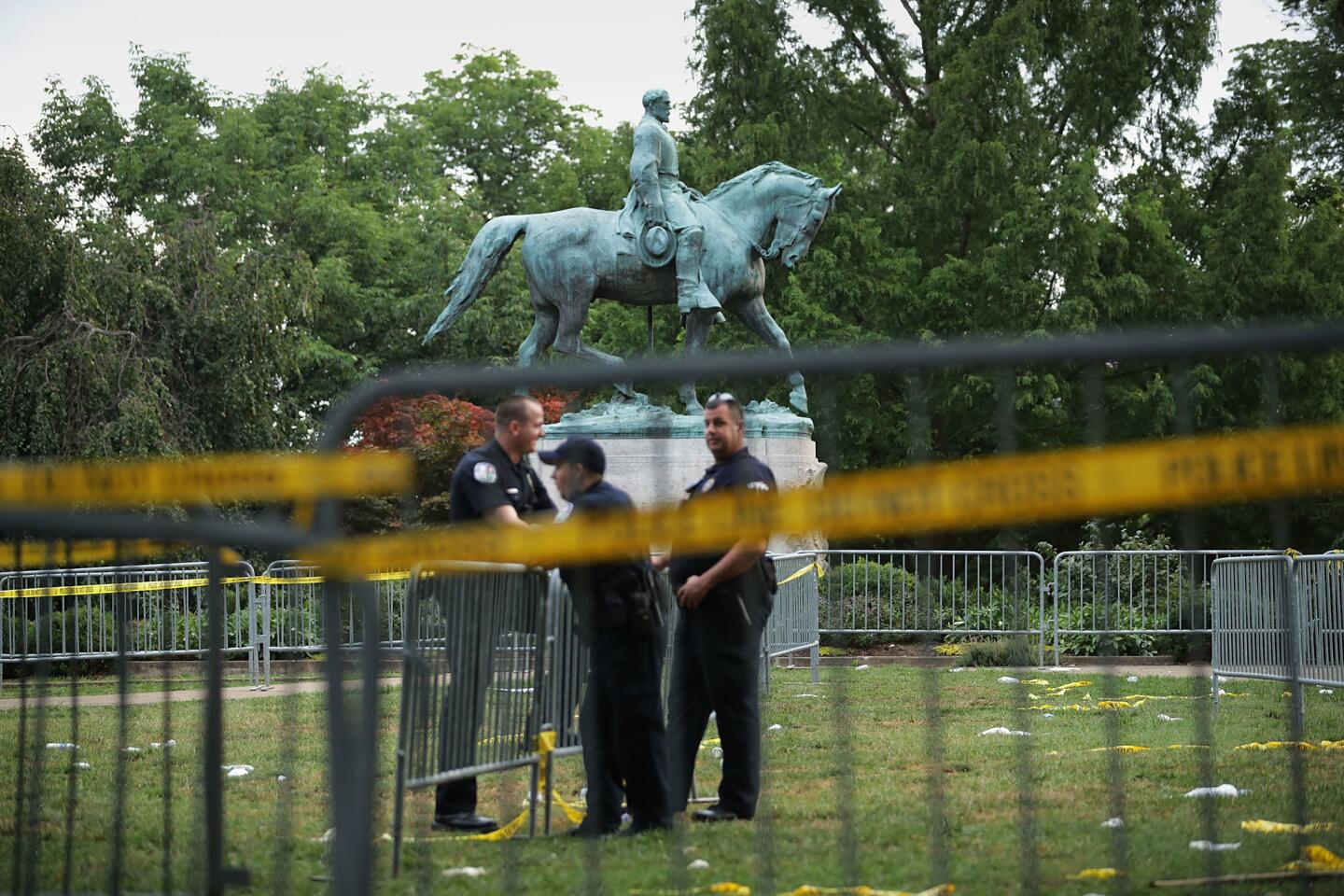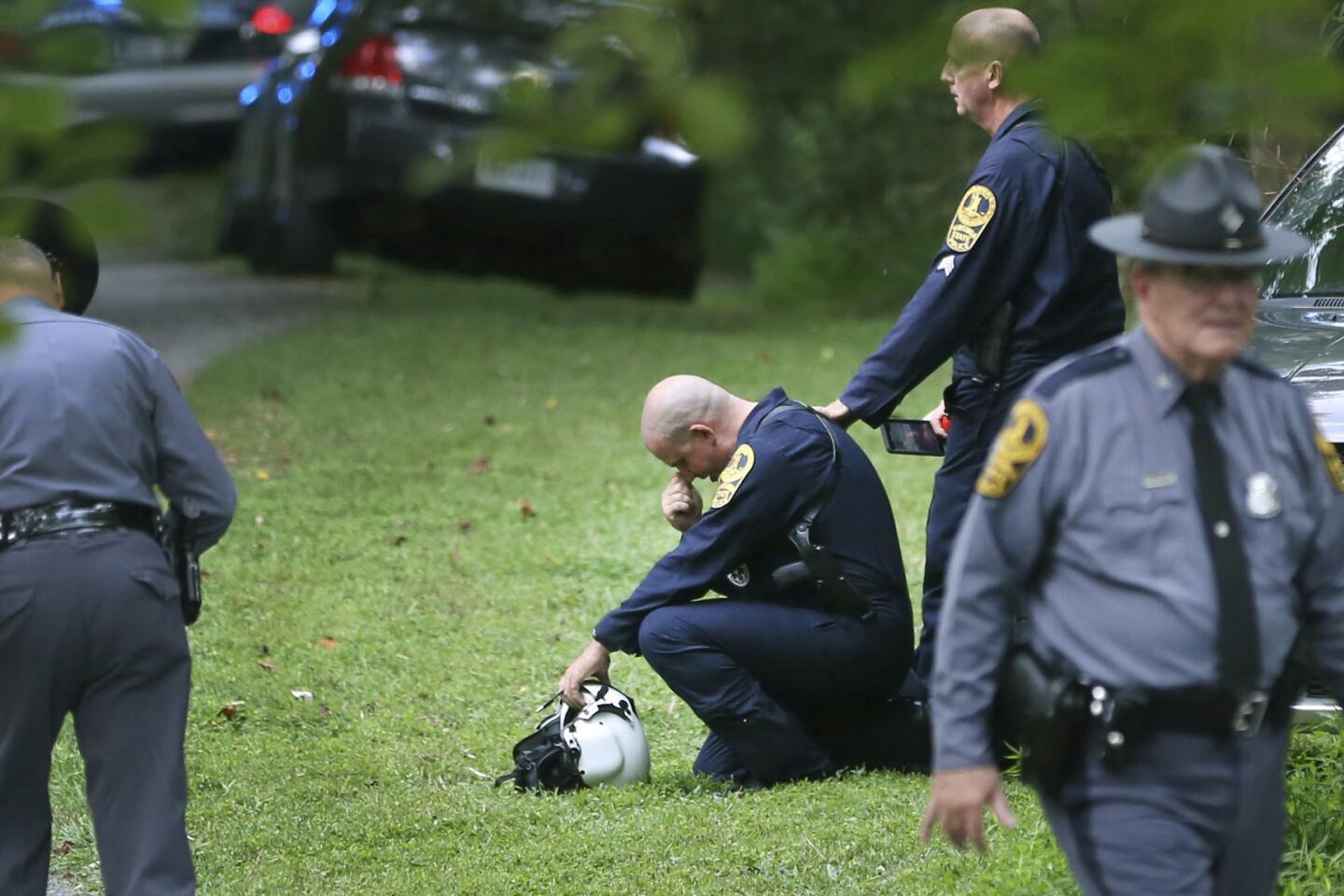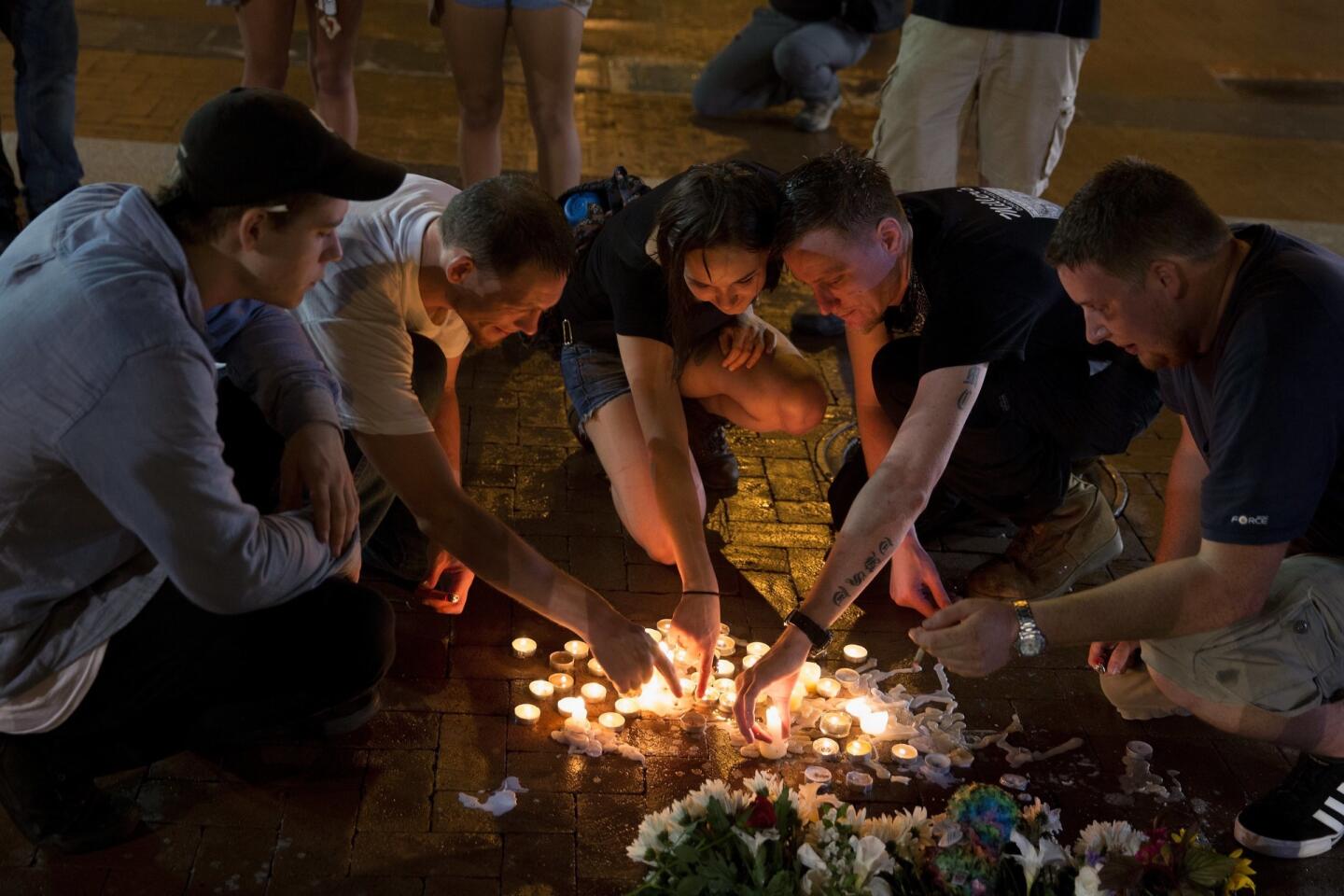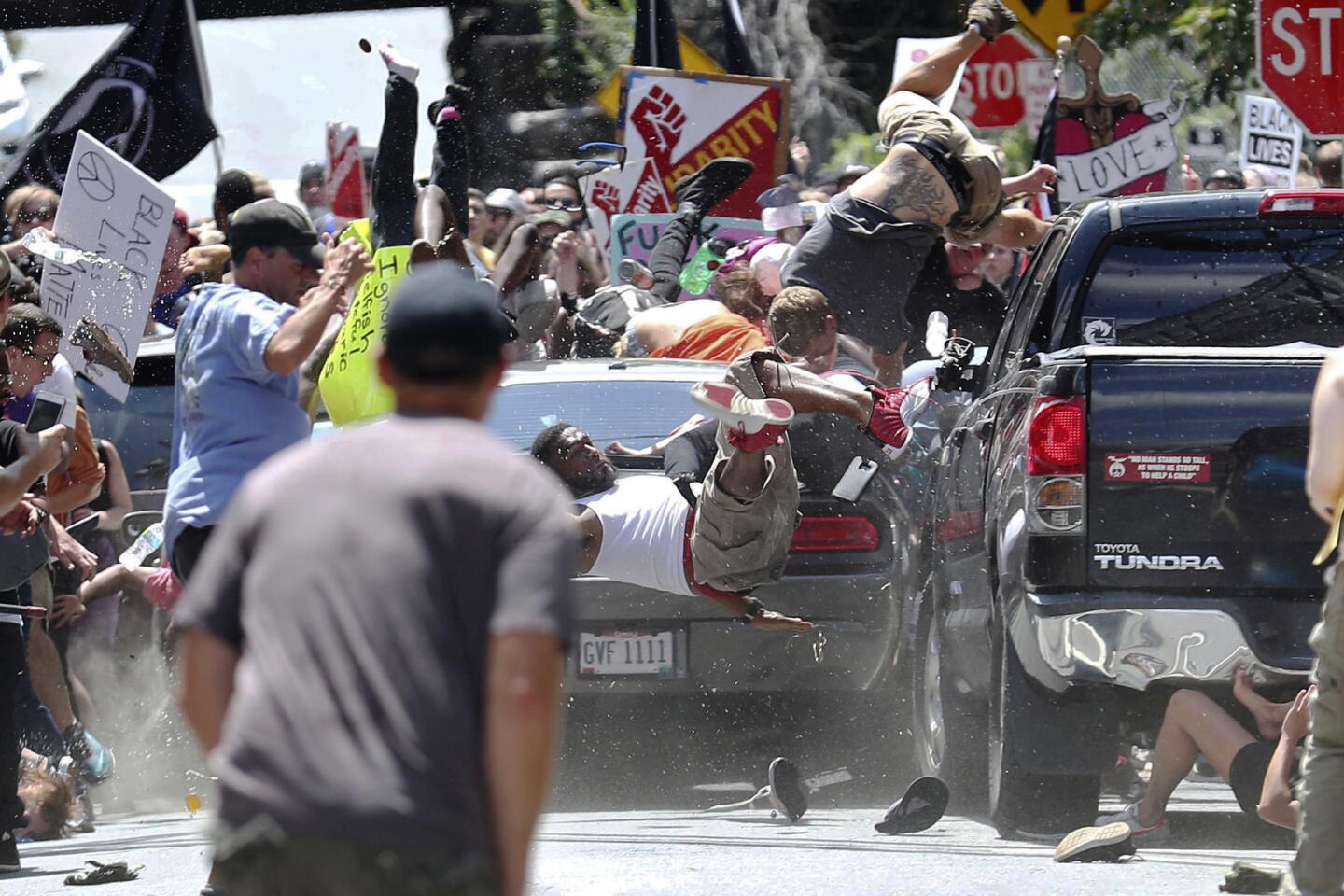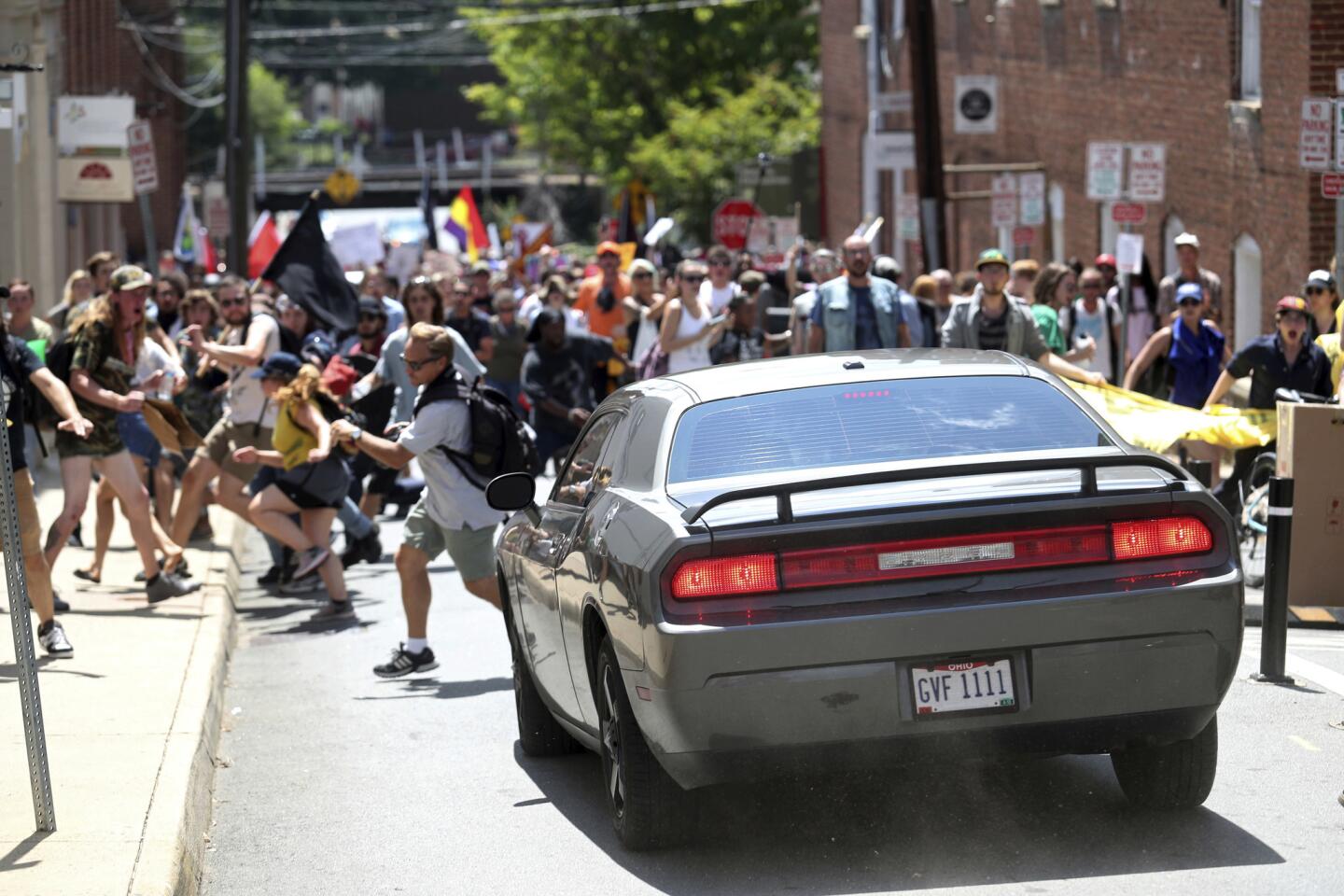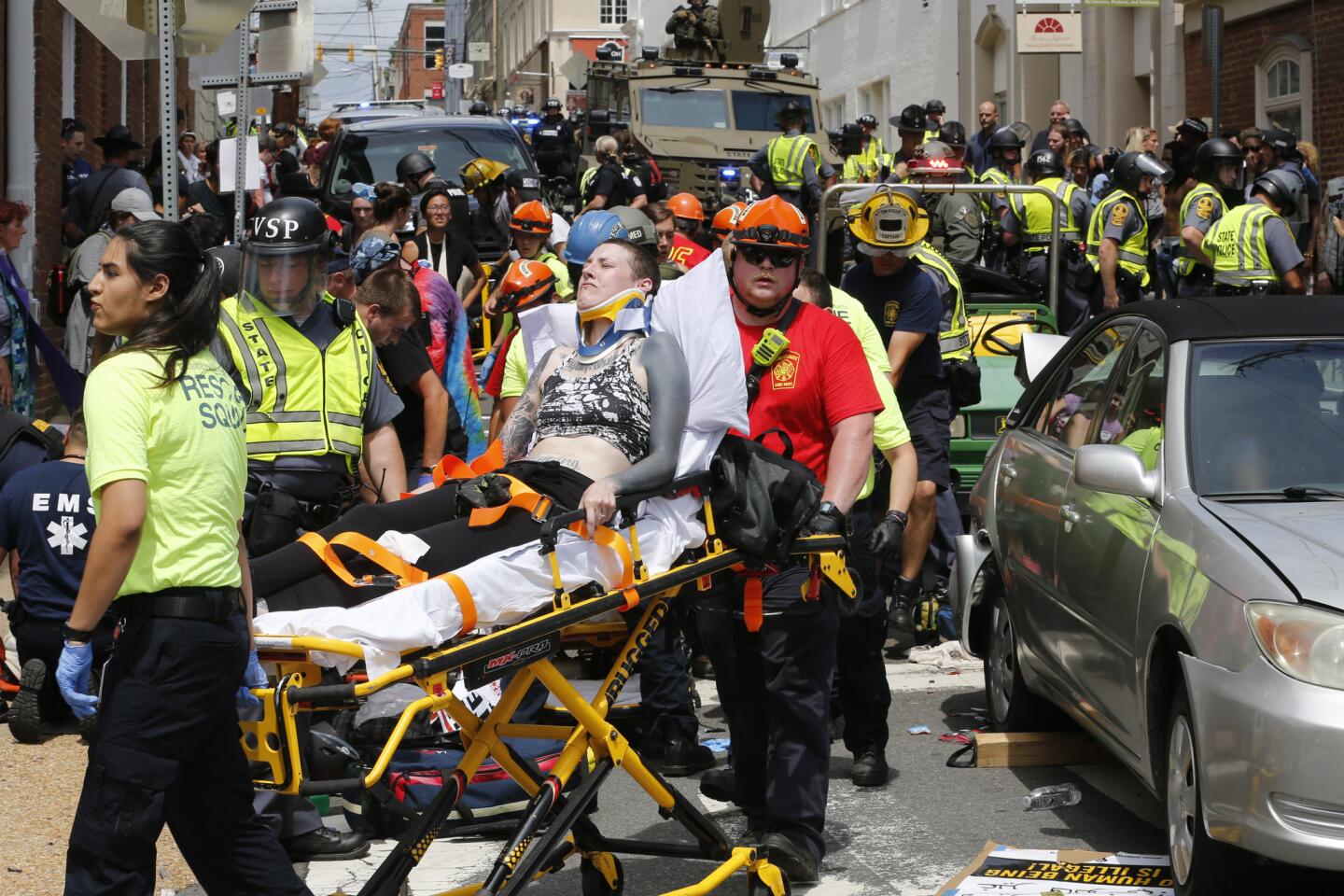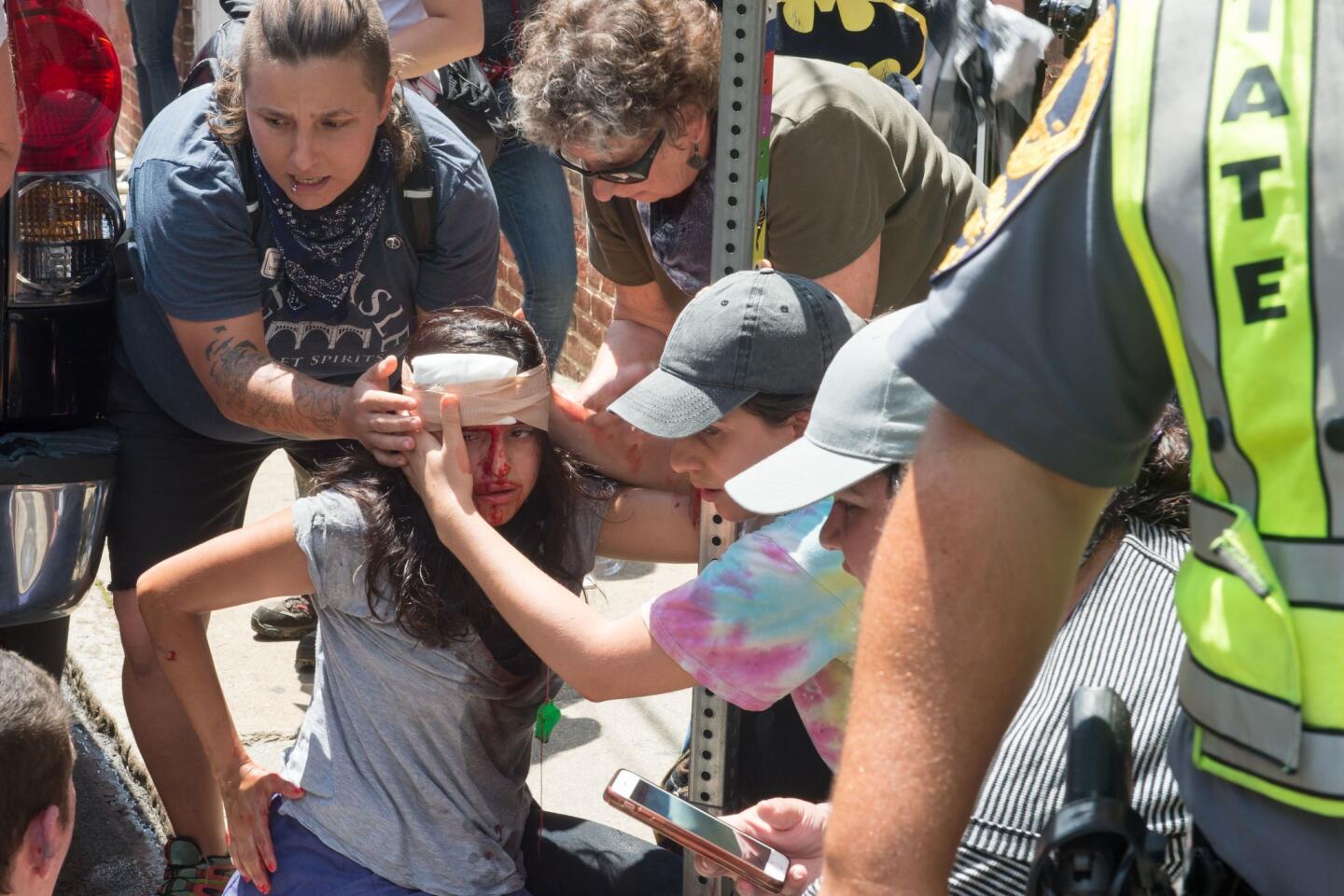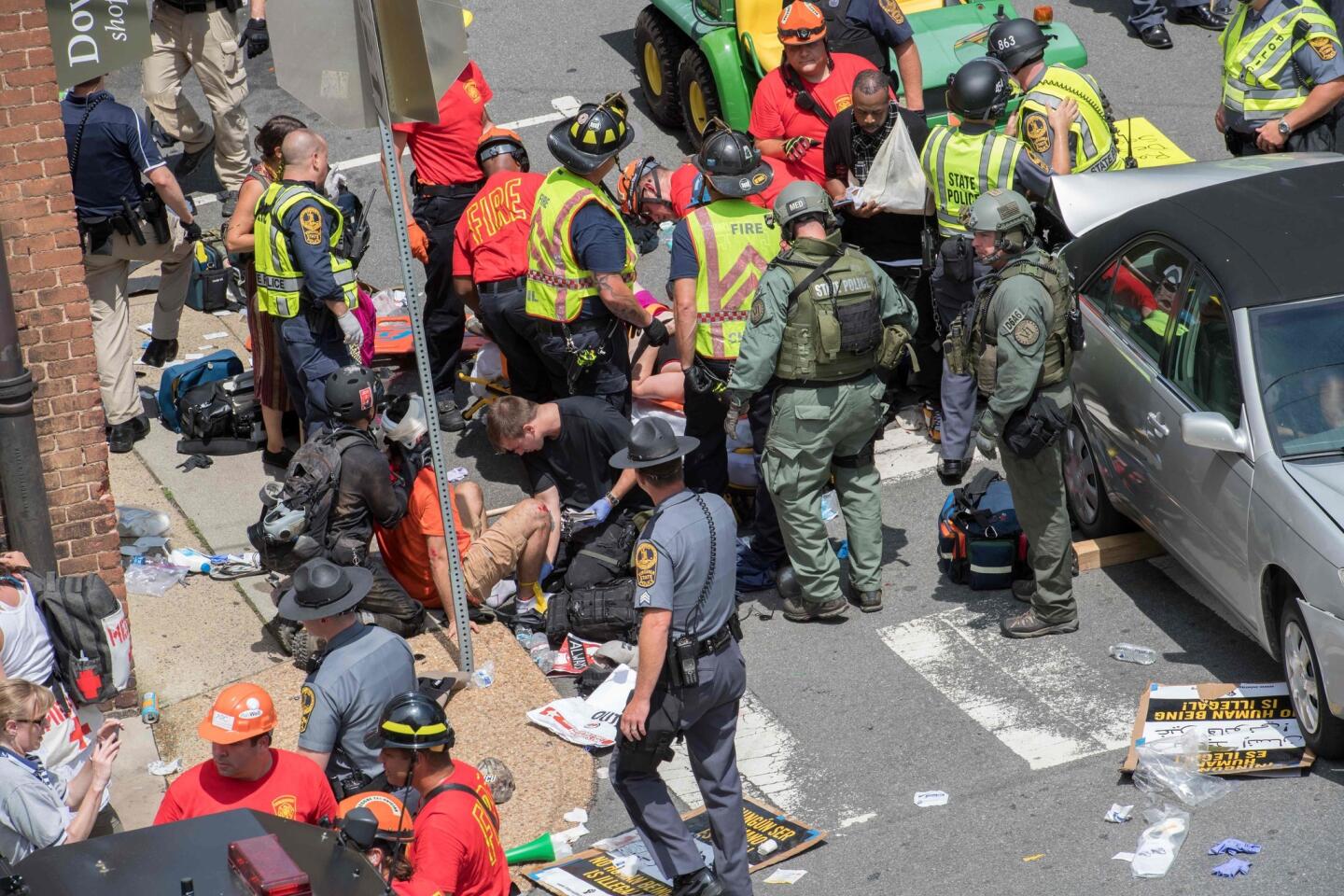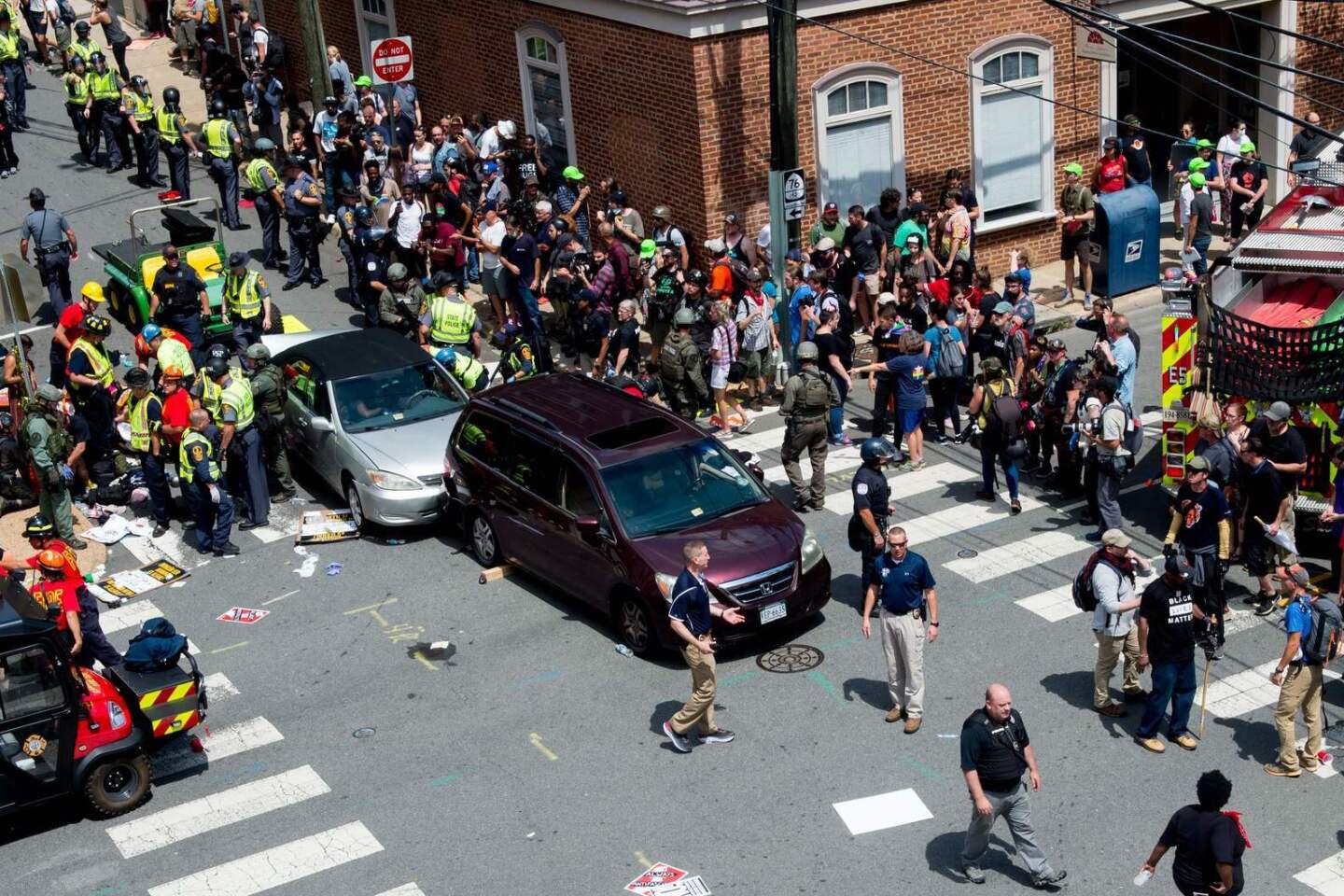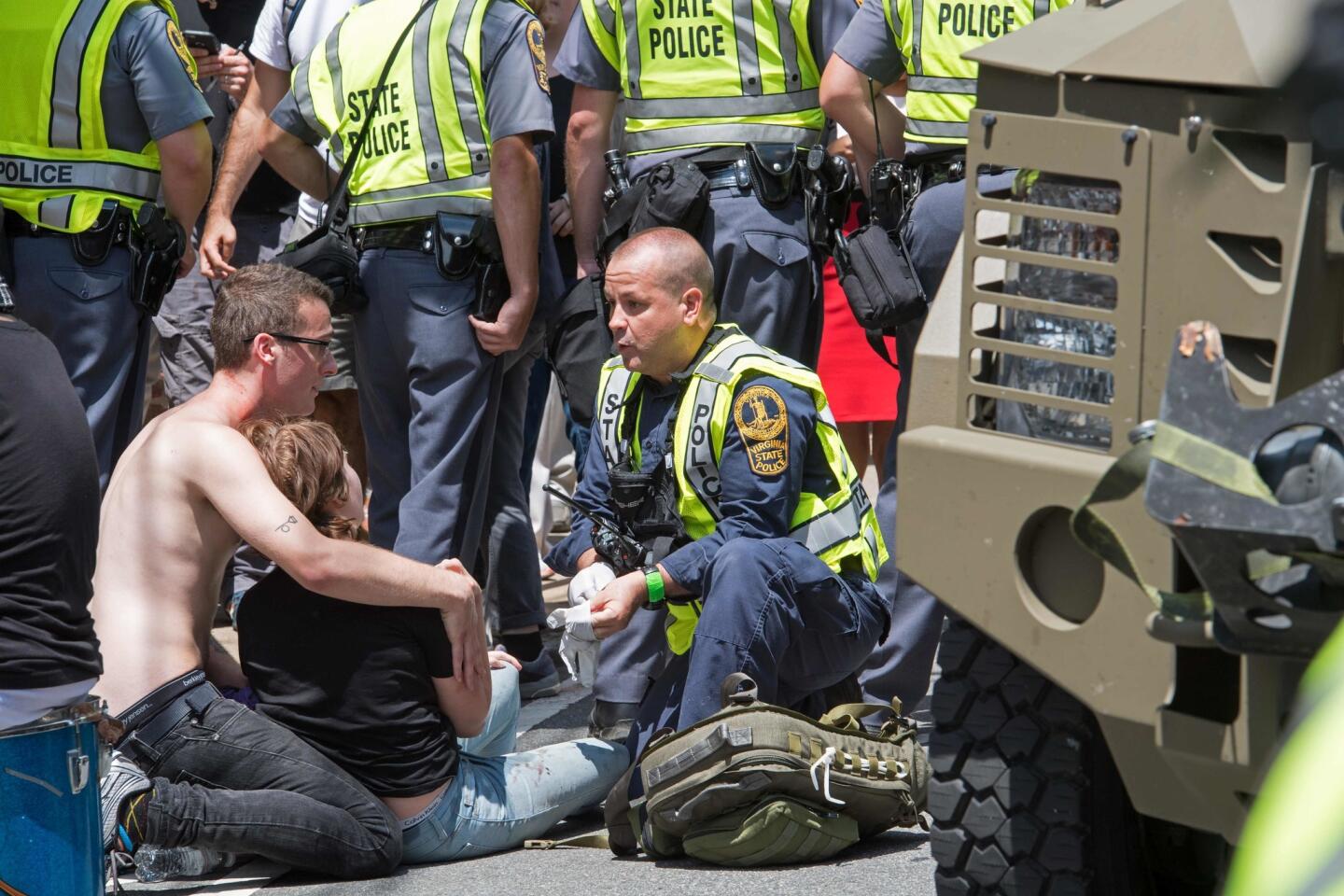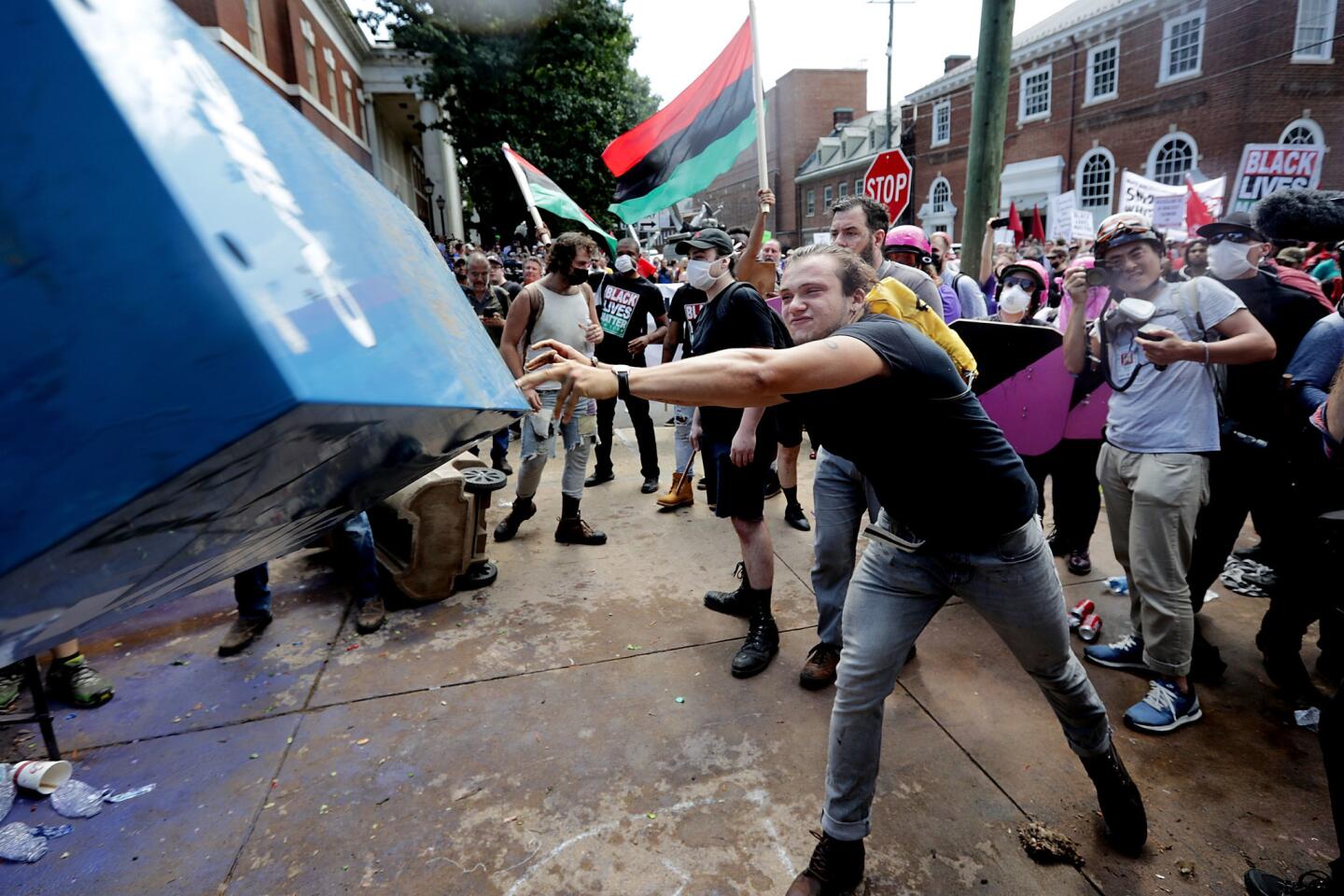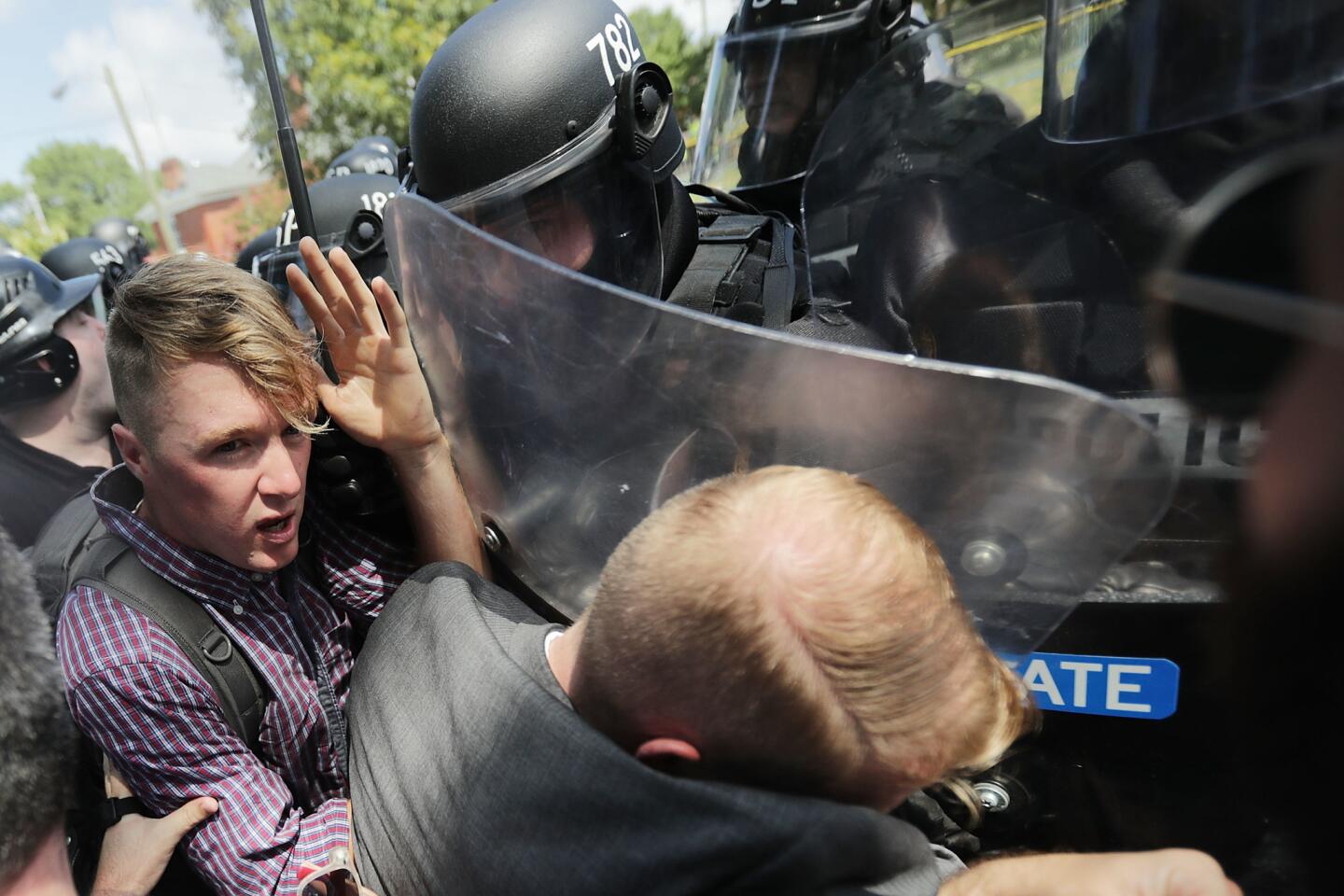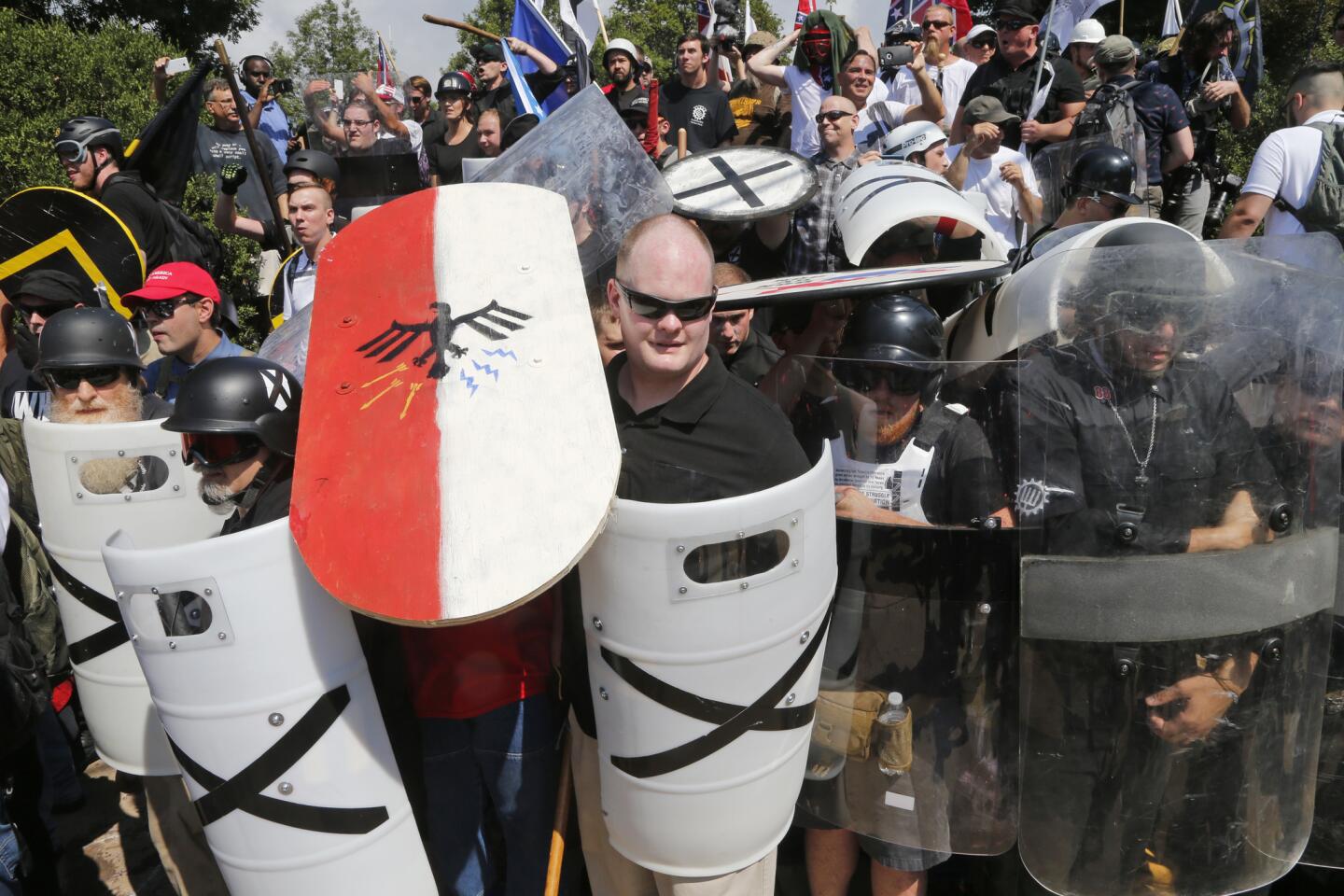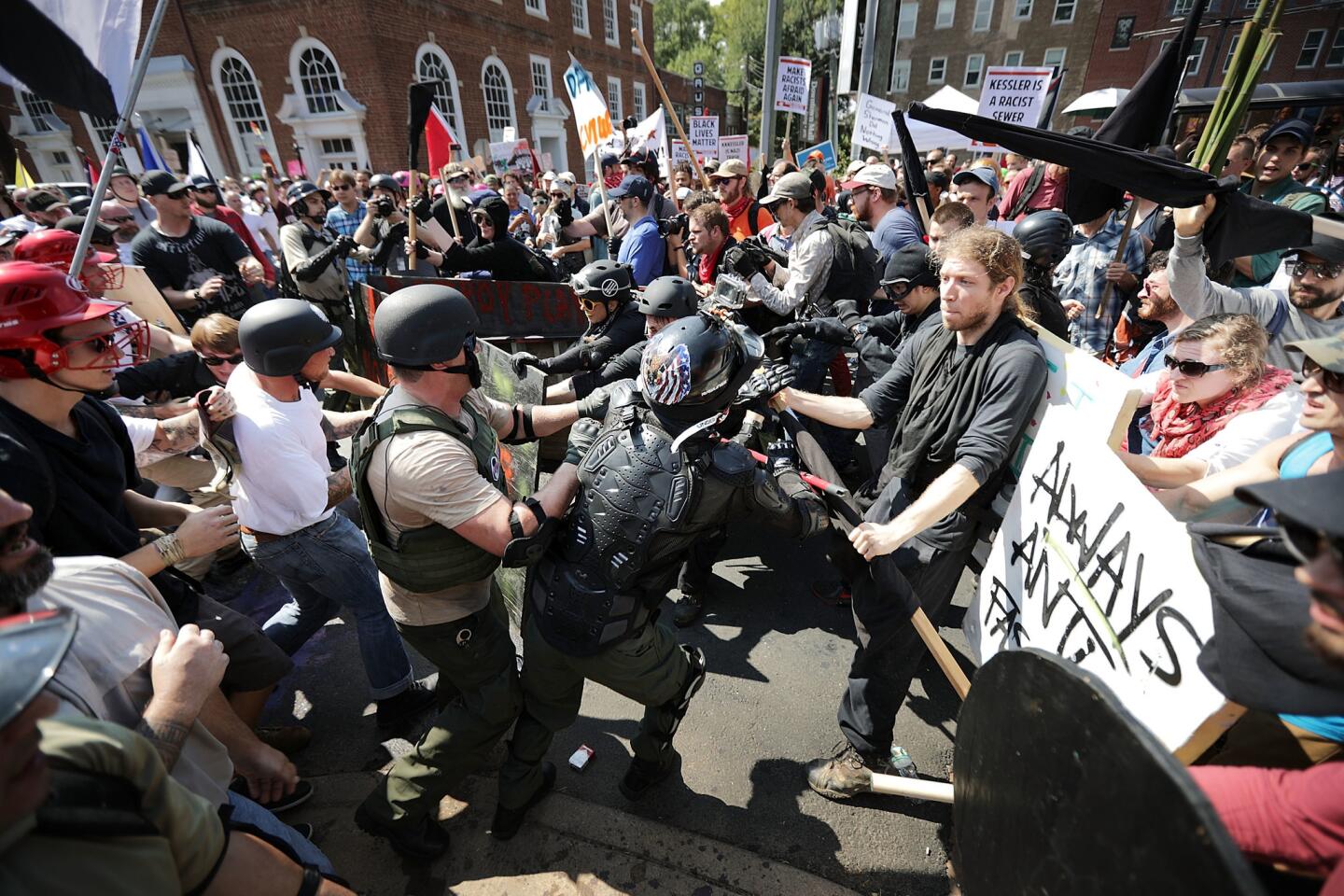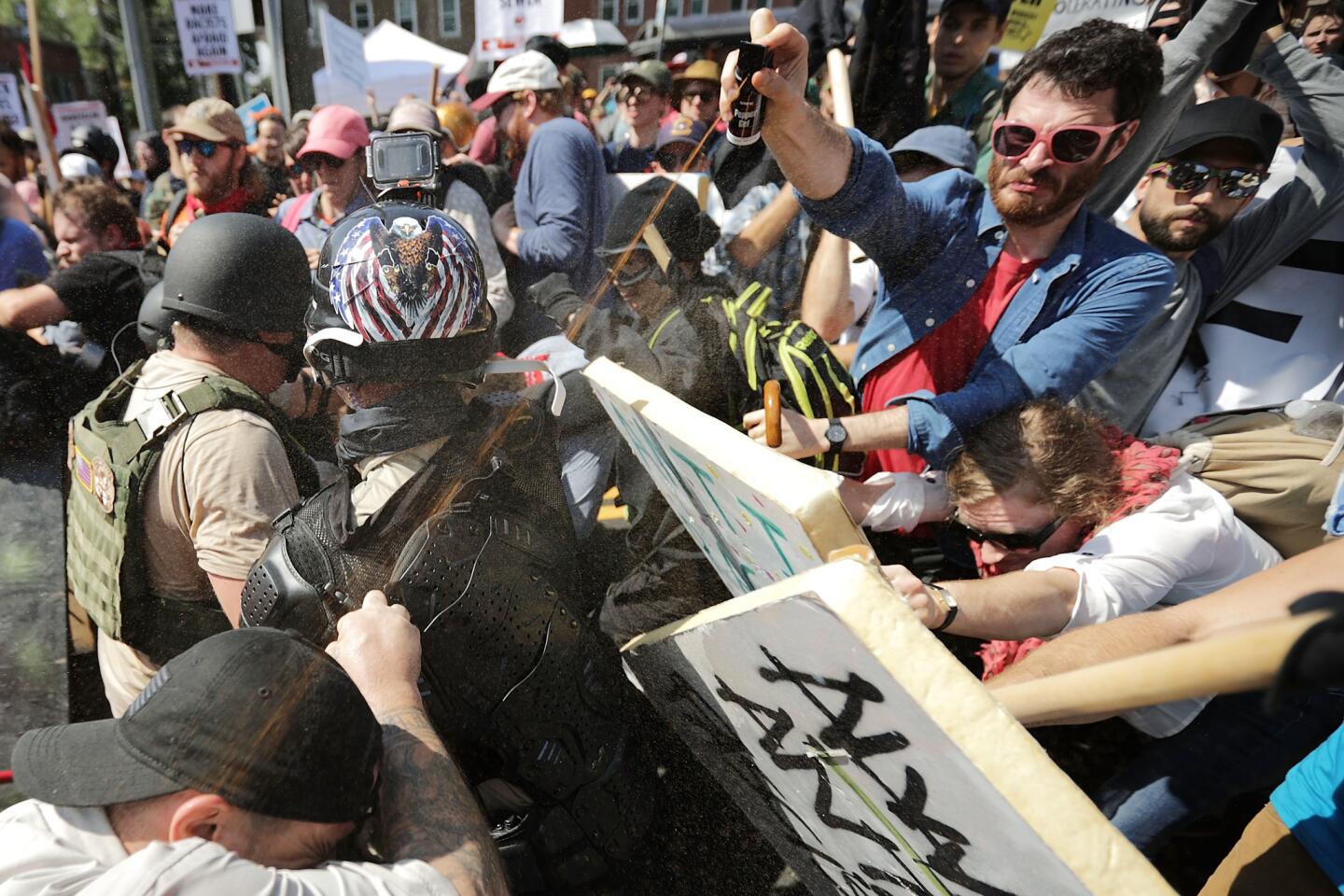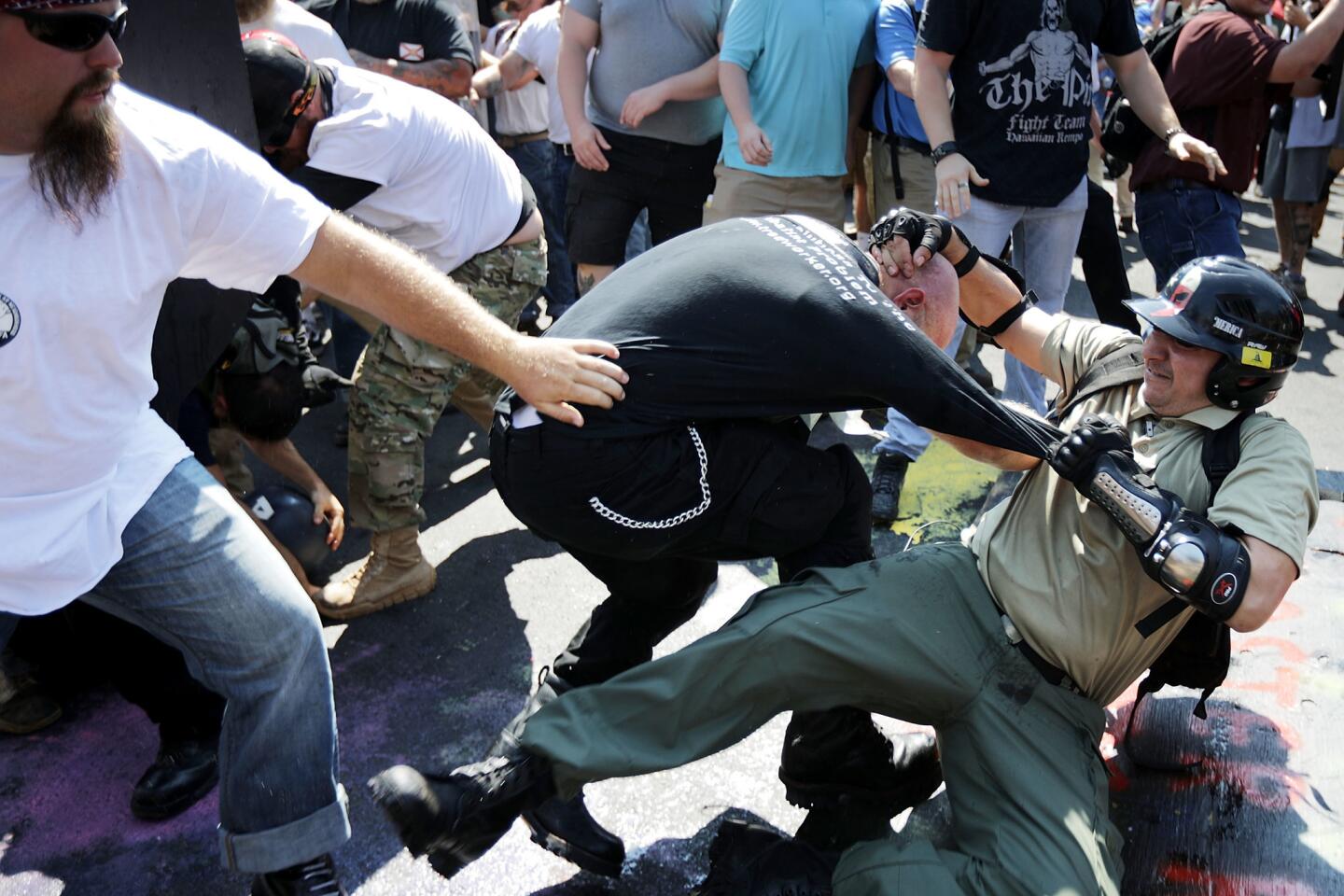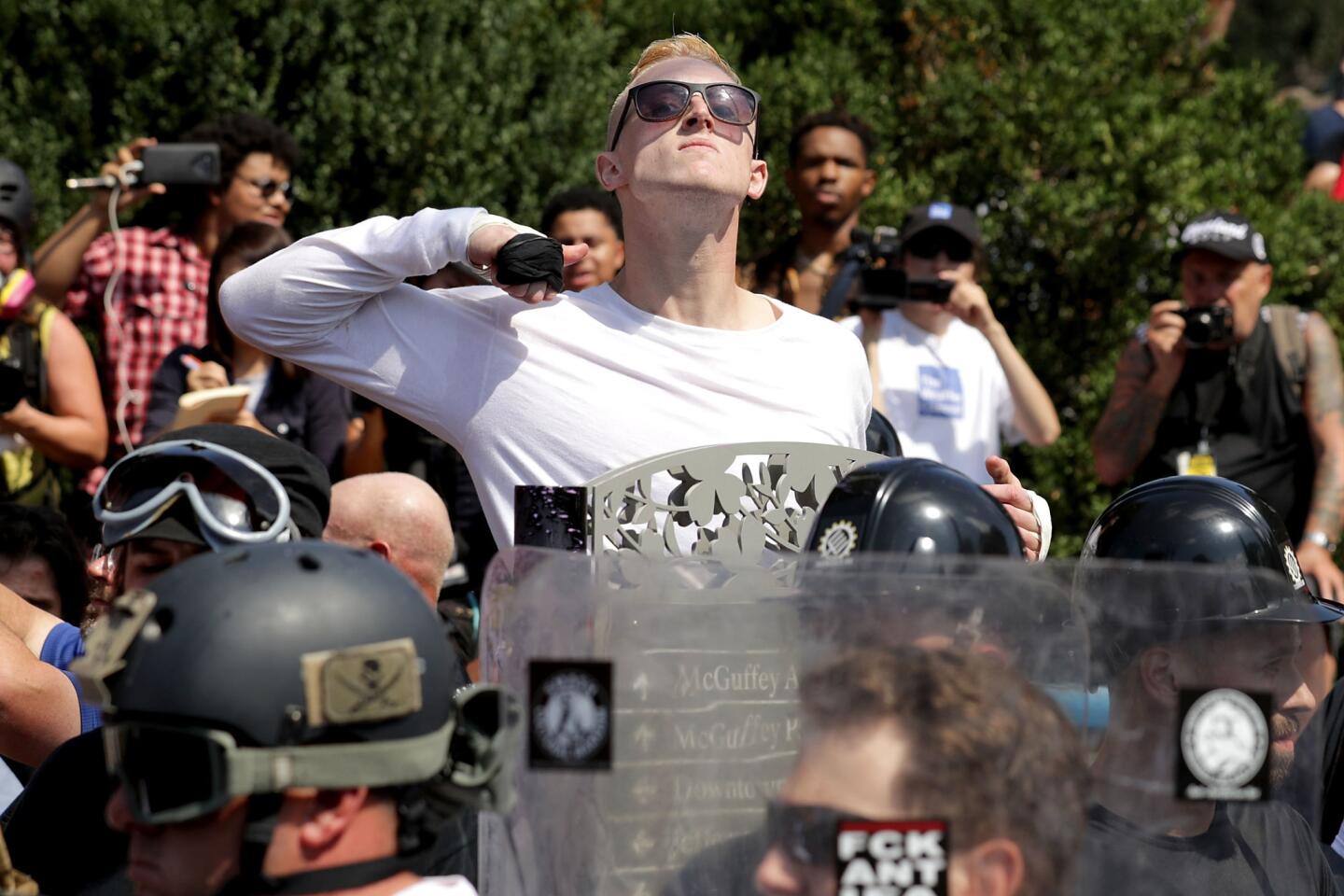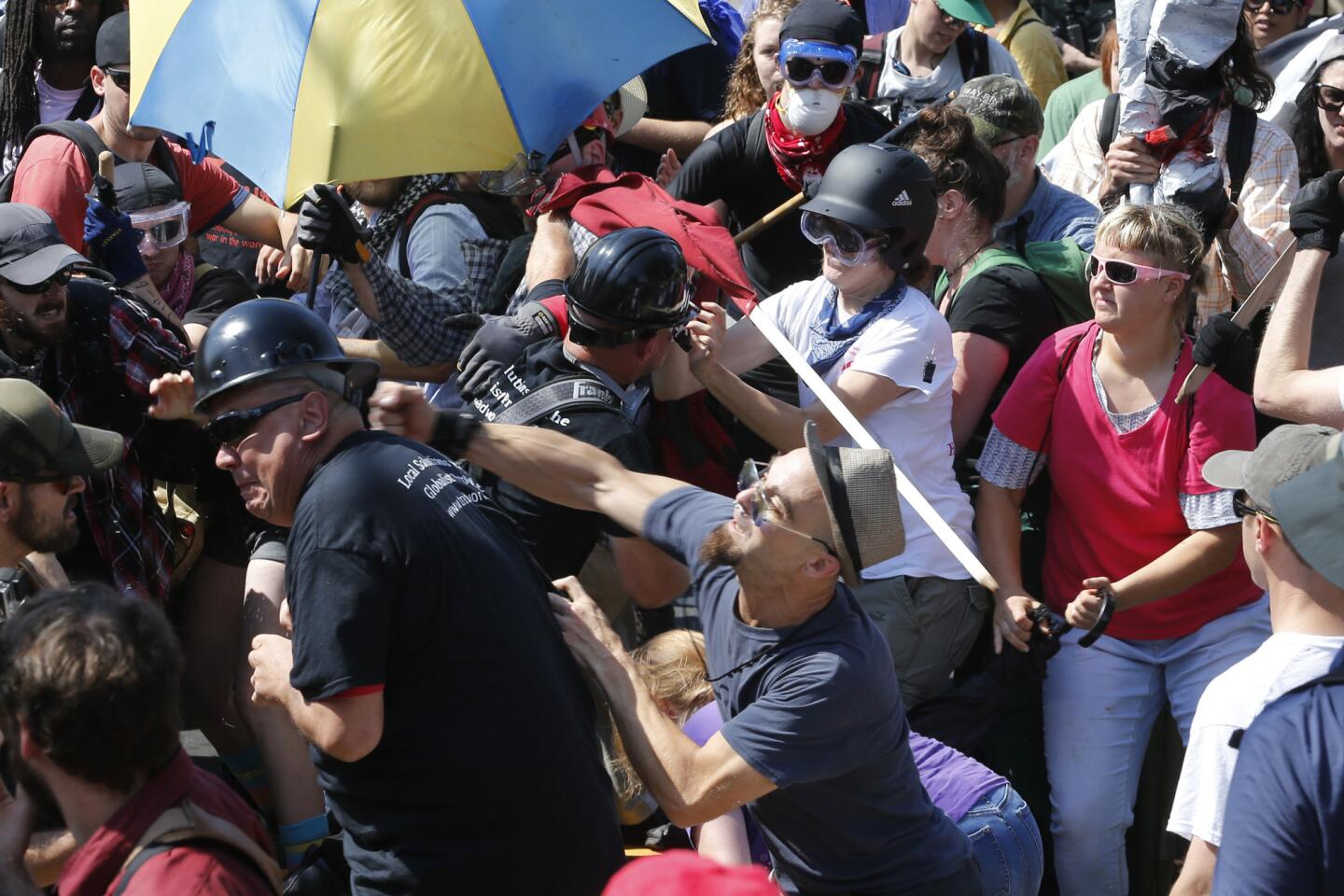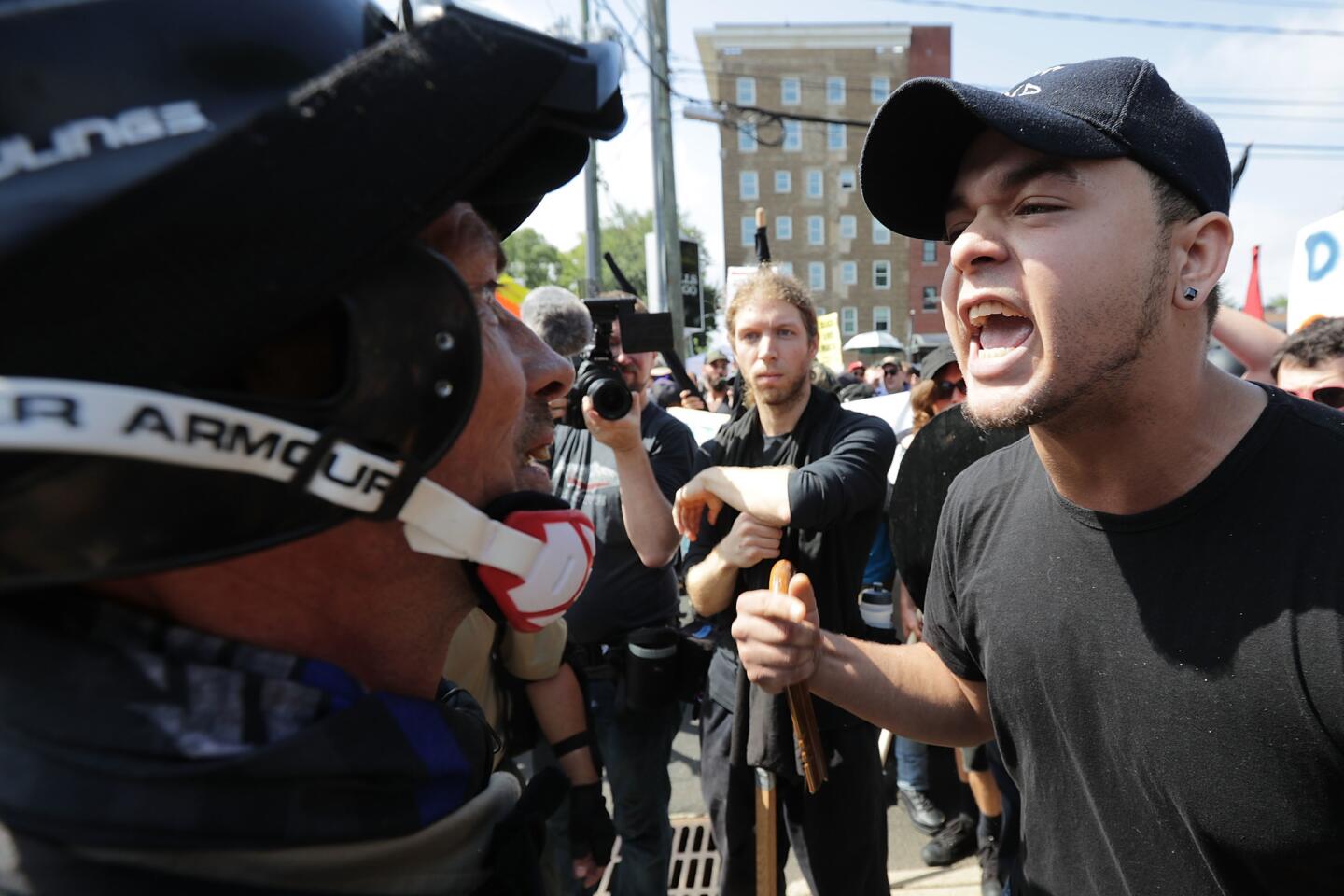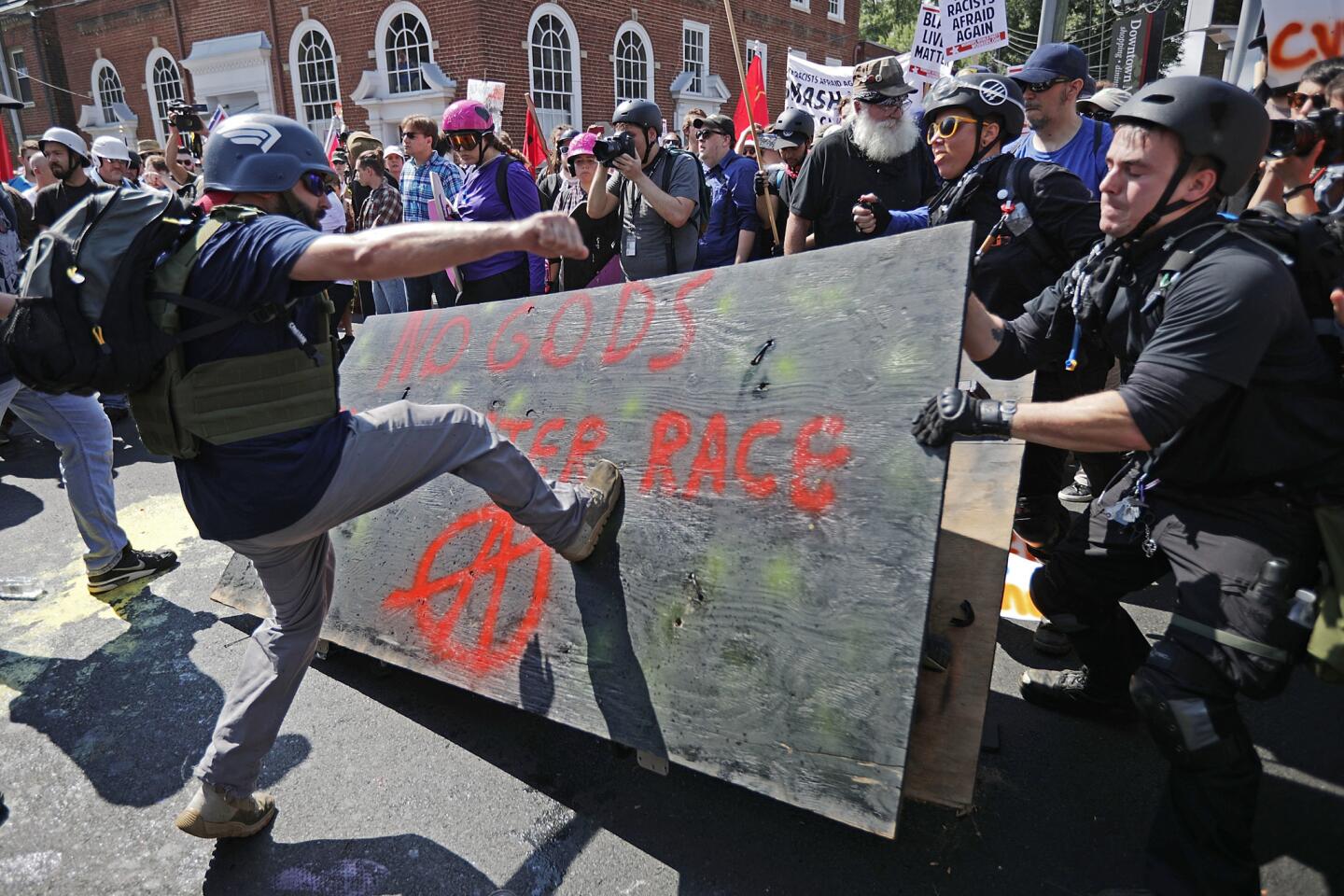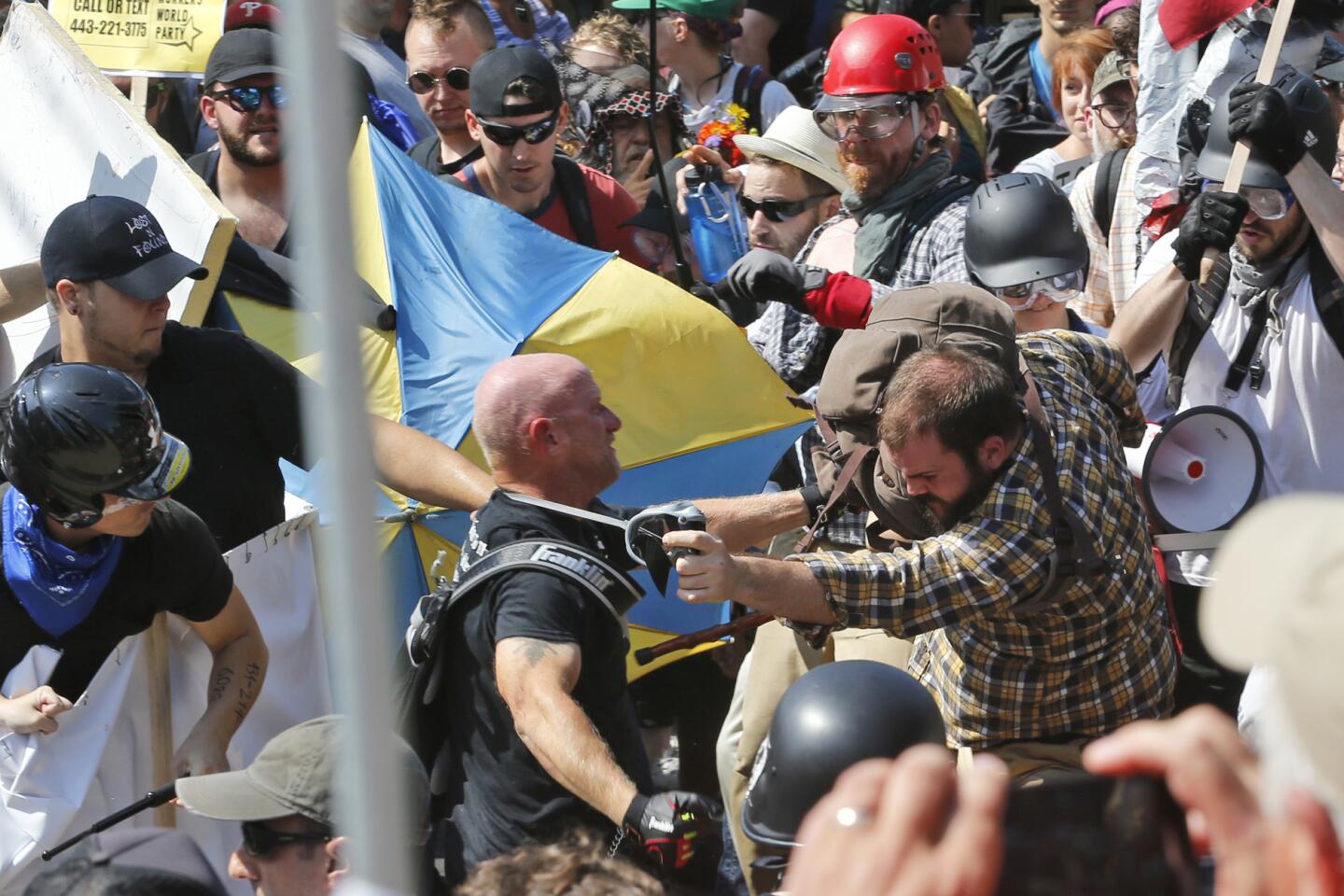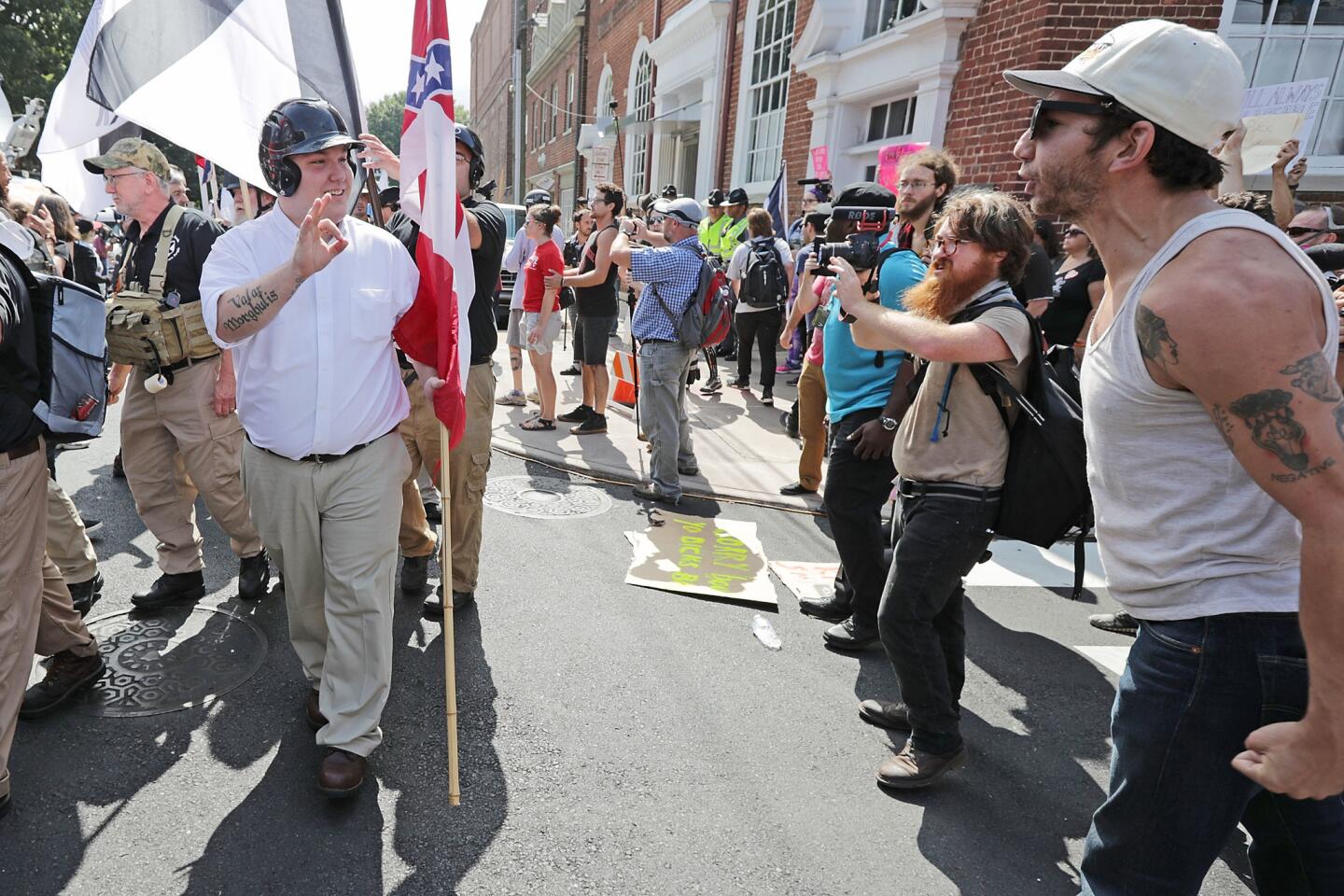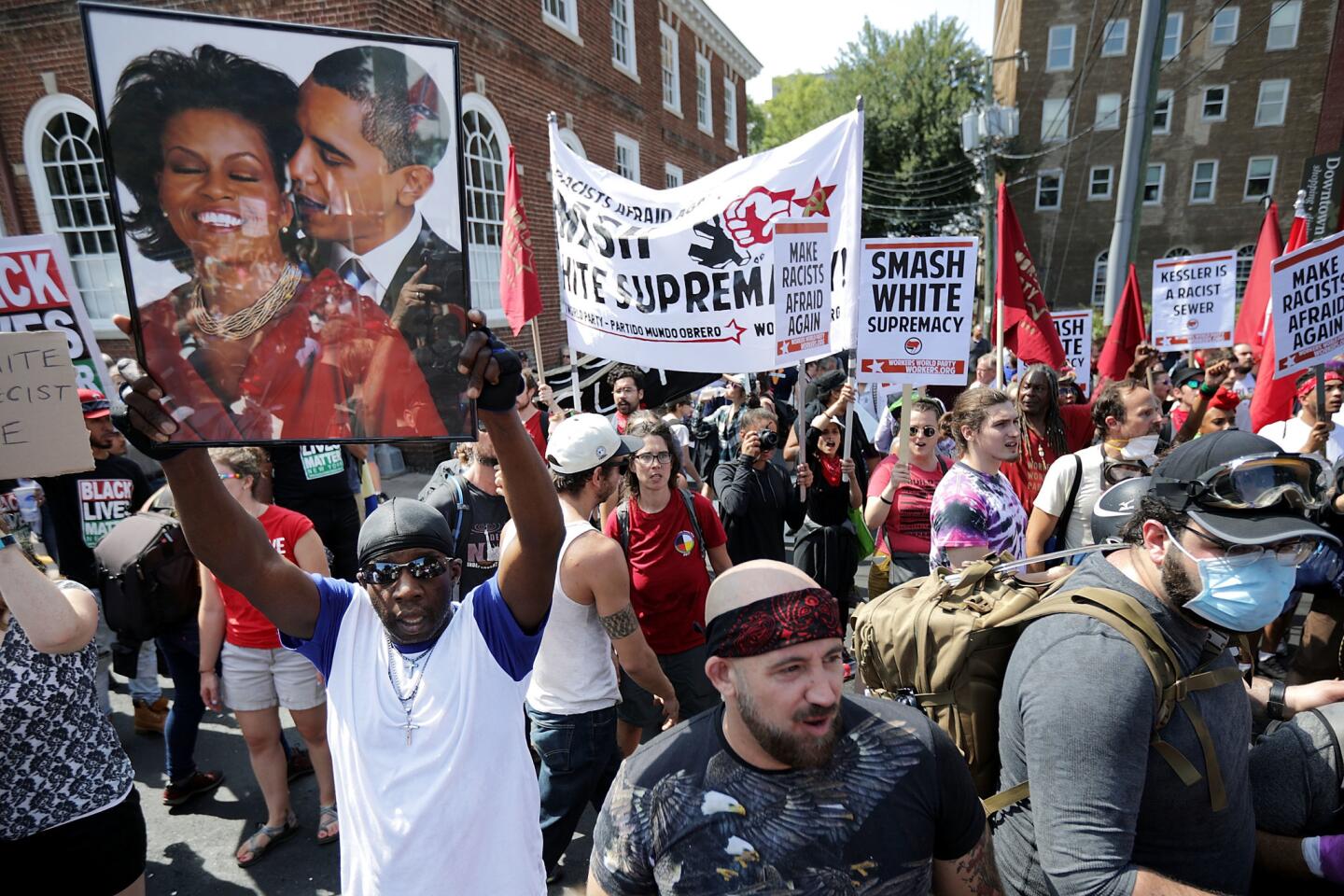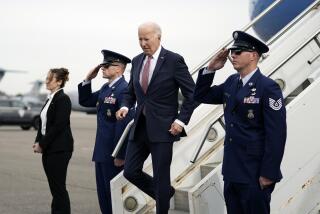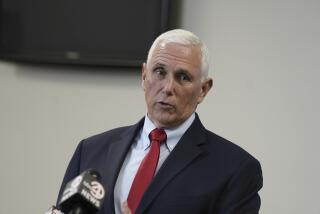White House defends Trump’s response to deadly violence in Charlottesville as criticism intensifies
Sometimes what President Trump doesn’t say causes his aides more headaches than things he does.
The White House on Sunday defended the president’s failure to explicitly condemn white supremacists over deadly violence a day earlier in Charlottesville, Va. He faulted “many sides” in his remarks Saturday, yet aides suggested Trump’s implicit denunciation of right-wing hate groups was clear.
Criticism of the president poured in for a second day, including from some GOP allies who added their voices to the chorus of opprobrium from Democrats. Citizens and advocacy groups expressed outrage as well, attributing the president’s omission to a reluctance to alienate those in his base sympathetic to the hate groups.
Vice President Mike Pence, on a trip to South America, explicitly condemned such groups. And although his comment was worded in such a way as to seem to speak for the president, it also served to underscore Trump’s growing isolation over his failure to voice a similarly specific condemnation.
“We have no tolerance for hate and violence, white supremacists or neo-Nazis or the KKK,” Pence, who has denied having any ambition to run in the 2020 election, told reporters in Cartagena, Colombia.
In the face of mounting criticism, the president’s national security advisor, H.R. McMaster, said Trump would have more to say on the subject.
“I’m sure you will hear from the president more about this,” he said on NBC’s “Meet the Press.”
Another senior administration official, though, suggested that the president’s omission had not been accidental.
When White House homeland security advisor Tom Bossert was asked about Trump’s blaming of “many sides,” suggesting equal culpability for the white supremacist groups and the counter-protesters, Bossert said the president had opted not to “dignify the names” of white nationalist and neo-Nazi organizations.
After a lengthy back-and-forth with host Jake Tapper of CNN’s “State of the Union,” Bossert eventually made specific reference to white nationalist groups, though without affirming the president shared his views.
“I think you’ve belabored it, so let me say I condemn white supremacists, and Nazis, and groups that favor this type of exclusion,” he said.
Two days of provocative protests by white supremacists in the normally quiet Virginia college town took a lethal turn on Saturday when a car plowed into a crowd, killing a woman, and a state police helicopter crashed, leaving two officers dead.
Trump’s response added another layer of controversy, following a week in which his unfiltered utterances roiled the capital and the world beyond. He had unnerved many Americans and allies with bellicose threats against nuclear-armed North Korea, picked a fight with the most powerful Republican in Congress, Senate Majority Leader Mitch McConnell, and thanked President Vladimir Putin — sarcastically, the White House said — for slashing the staff of the U.S. diplomatic mission in Russia.
But the seeming moral equivalence he assigned to hate groups and those protesting against them seemed to touch a particularly raw national nerve, given the United States’ history with race.
Trump’s aides often are forced to try to clarify the president’s intent when he fails to address a particular point, or does so in a way that raises additional questions, and frequently they argue he did say something when he had not. McMaster suggested on ABC’s “This Week” that the president’s Saturday statement from his New Jersey golf club was a condemnation of the white supremacist movement.
“The president’s been very clear,” McMaster said. “We cannot tolerate this kind of bigotry, this kind of hatred.”
That seemed to contradict, however, his suggestion in the NBC interview that Trump may have failed to articulate his repudiation of specific hate groups — making further comment from him likely.
Still, McMaster said, “He condemned hatred and bigotry on all sides, and that includes white supremacists and neo-Nazis. I think it’s clear. I know it’s clear in his mind.”
Trump himself remained silent. But an unnamed White House spokesperson issued a statement Sunday also suggesting Trump had sufficiently condemned the groups — specifically naming them as he had not, while continuing to suggest broader blame.
“The President said very strongly in his statement yesterday that he condemns all forms of violence, bigotry, and hatred. Of course that includes white supremacists, KKK, neo-Nazi and all extremist groups,” said the statement, given to reporters covering Trump as he vacations in Bedminster, N.J. “He called for national unity and bringing all Americans together.”
McMaster also said that the car attack on a crowd of counter-protesters that killed a 32-year-old woman should be considered an act of domestic terrorism.Authorities identified the driver as James Alex Fields Jr., 20, of Ohio, who participated in the marches, and arrested and charged him with second-degree murder.
Trump has made no such suggestion of terrorism. The Justice Department said late Saturday that it was opening a civil rights investigation.
The Democratic mayor of Charlottesville, Michael Signer, offered fresh criticism of the president, suggesting his particular responsibility to speak out against hate groups.
“Look at the campaign he ran,” Signer said on CNN’s “State of the Union.” “Look at the intentional courting, both on the one hand all of these white supremacist, white nationalist groups like that, anti-Semitic groups, and then look on the other hand: the repeated failure to step up and condemn, denounce, silence, put to bed, all of those different efforts just like we saw yesterday.”
Republican allies likewise advised Trump to actively repudiate white supremacists who describe themselves as his supporters. Sen. Lindsey Graham of South Carolina, appearing on “Fox News Sunday,” said: “I would urge the president to dissuade these groups that he’s their friend.”
Another Republican senator, Cory Gardner of Colorado, said, “They shouldn’t be claimed as part of a base. Call it for what it is — it’s evil; it’s white nationalism.”
Even disgraced former White House communications director Anthony Scaramucci weighed in with advice to Trump to be more explicit.
“I think he needed to be much harsher as it related to the white supremacists and the nature of that,” he said on ABC’s “This Week.”
The president’s daughter Ivanka Trump, who is a White House advisor, used language more specific than that of her father in condemning the Charlottesville violence. In her first response, a tweet on Sunday morning, she declared that there should be “no place in society for racism, white supremacy and neo-nazis.”
Twitter: @laurakingLAT
ALSO
Squeezed out by Silicon Valley, the far right is creating its own corporate world
UPDATES:
6:15 p.m.: This article was updated with comment from Vice President Mike Pence.
This article was originally published at 2:15 p.m.
More to Read
Get the L.A. Times Politics newsletter
Deeply reported insights into legislation, politics and policy from Sacramento, Washington and beyond. In your inbox three times per week.
You may occasionally receive promotional content from the Los Angeles Times.
